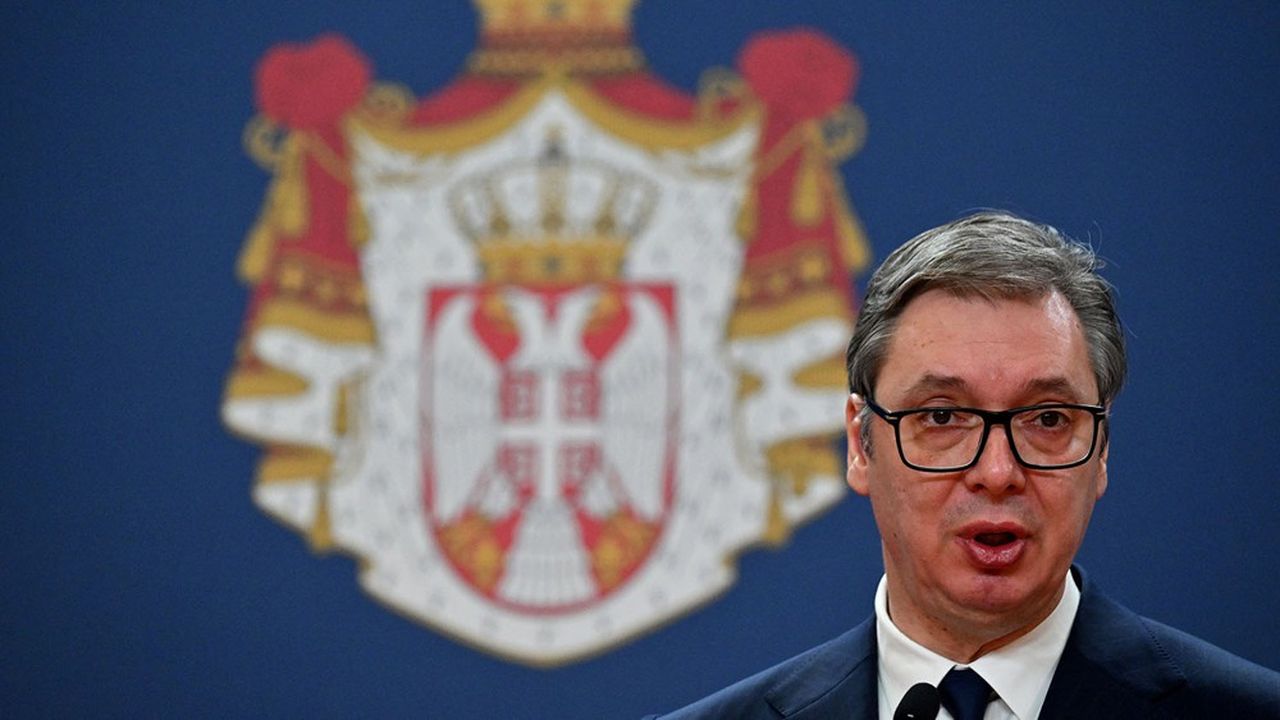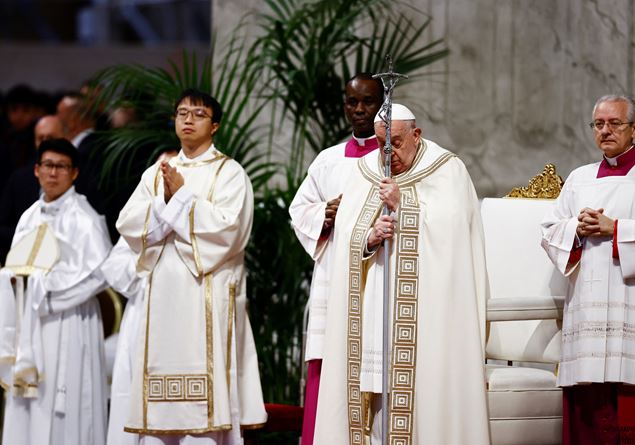
Presidential trips usually have both a diplomatic and a commercial component. Emmanuel Macron’s trip to Serbia, where he is expected on Thursday evening, should not escape the rule, with the officialization of the sale of twelve Rafale aircraft from Dassault, for three billion euros.
And this trip (at a time that may come as a surprise since the head of state was supposed to be preoccupied with the delicate choice of a Prime Minister) will include a diplomatic component to express the conviction that the future of Serbia lies “within the European Union and nowhere else”, to use the French president’s phrase after the official visit to Paris in April by the Serbian president, Aleksandar Vucic.
EU candidate for twelve years
Which does not seem so obvious, given that, at the same time, Belgrade is leaning towards Moscow. True, the Serbian regime condemned the invasion of Ukraine, but refused to apply sanctions to Russia, unlike almost all European countries. And some of Aleksandar Vucic’s statements reflect a certain complacency towards Moscow, even if Belgrade claims to sincerely want to join the European Union, to which the country has been a candidate for twelve years.
The talks between the two heads of state on Thursday evening will be devoted to some clarifications on the way in which Serbia remains seated between two chairs, more precisely between two geopolitical blocs, even if this can be explained by historical and economic considerations: on the one hand, Serbia has always been allied with Russia, due to its proximity between nations of Orthodox religion, on the other hand its economic interests now clearly lean towards the West.
The European Union thus represented 59.7% of Serbian international trade last year, with volumes having tripled since the entry into force in 2010 of an interim trade agreement of the association agreement, while Russia is now only Belgrade’s sixth largest trading partner. On the other hand, in terms of trade and investment, it is Beijing that is assiduously pushing its pawns in Serbia.
Anchoring Belgrade firmly
The sale of the high-performance Rafale fighter jets, certainly a first for a country so close to Moscow, would constitute one of the elements encouraging Belgrade to “firmly anchor itself to Europe”, they want to believe at the Elysée. Where they recall to dispel some concerns that Serbia is a candidate for membership of the European Union, has established a partnership with the Atlantic Alliance, participates in external operations with the latter and that any arms contract contains usage clauses.
Other partnerships, with contracts to be signed on Thursday evening, are supposed to contribute to this connection to the west of Belgrade: in water treatment, electricity, with an outline of discussions on civil nuclear power, health and artificial intelligence. The two heads of state will also go to a forum on Friday in Novi Sad, Serbia’s second city, dedicated to AI.
The delicate issue of Kosovo
Aleksandar Vucic stressed, the day before his counterpart’s arrival, that all Serbian combat aircraft, mainly old Soviet MIG-29s, came from Russia: “We must evolve, change our habits.” He considered that the visit of the French president “would benefit Serbia’s progress towards the European Union.”
A march which nevertheless comes up against two obstacles: on the one hand, a state of law and a democratic climate, illustrated by the fraud in the last legislative elections, which do not yet correspond to the standards of the European Union, even if a lot of ground has been covered since the Milosevic era, overthrown in 2000. On the other hand, the question of Kosovo, this Serbian province populated mainly by Muslims which gained its de facto independence following a NATO air intervention in 1999.
Kosovo was recognized in 2008 by the majority of European countries and not, logically, by Serbia. Reconciliation efforts have since then always failed and Belgrade and Pristina have several times pretended to resume hostilities. Emmanuel Macron has considered in recent months that Serbia had really tried to do “its part” with a view to a form of normalization “prior to the realization of the European perspective of the two countries”, and criticized Kosovo’s intransigence.





